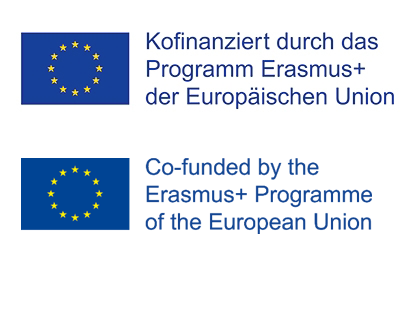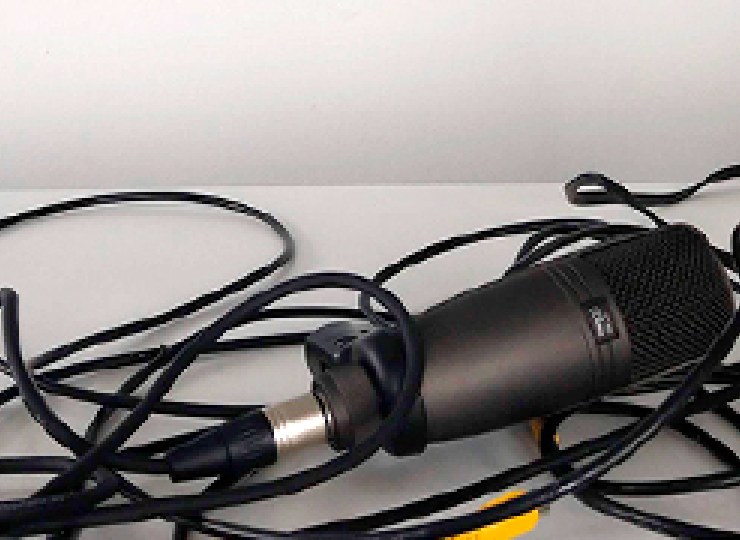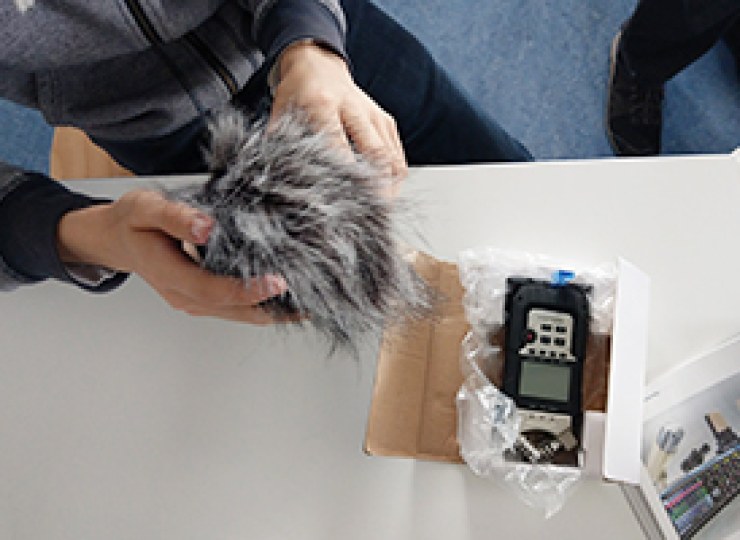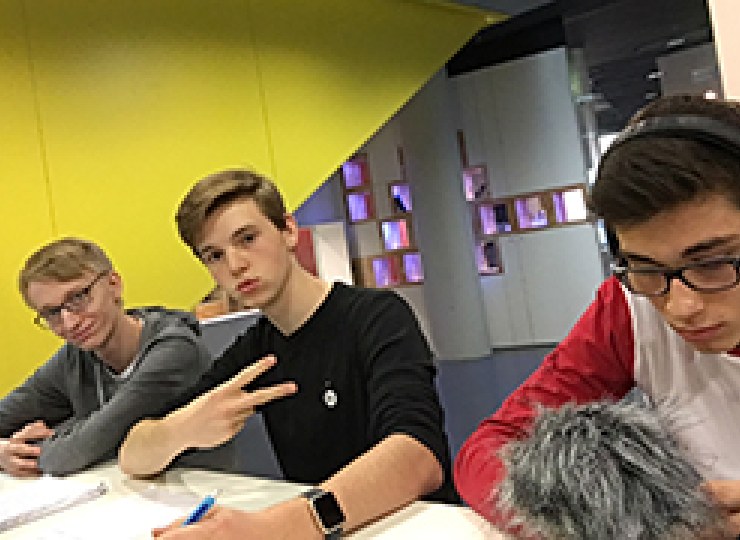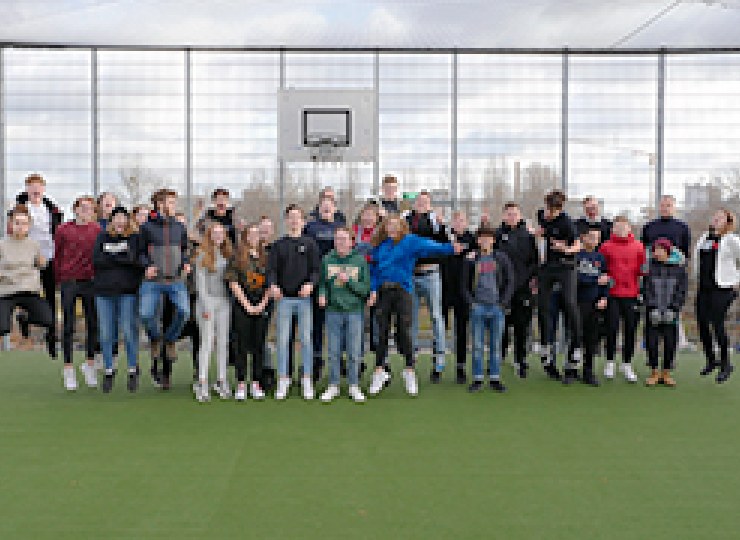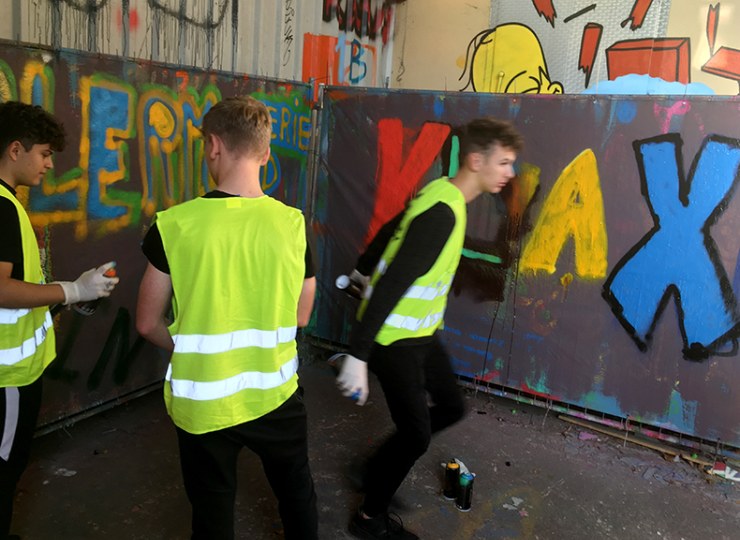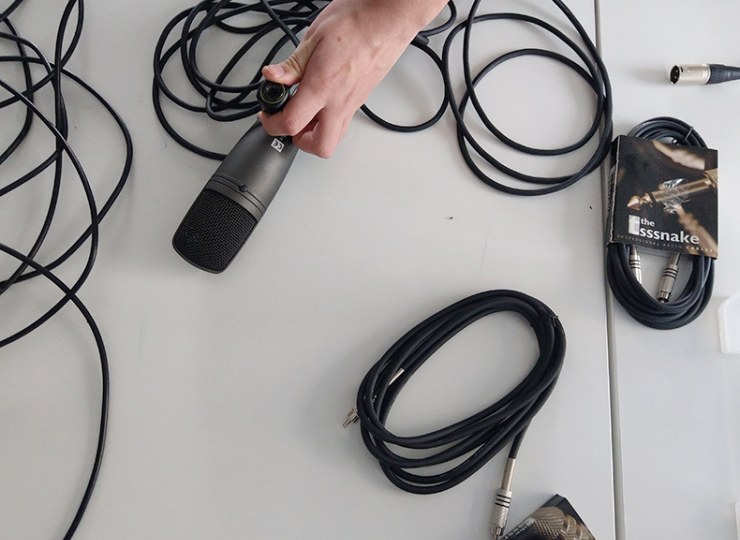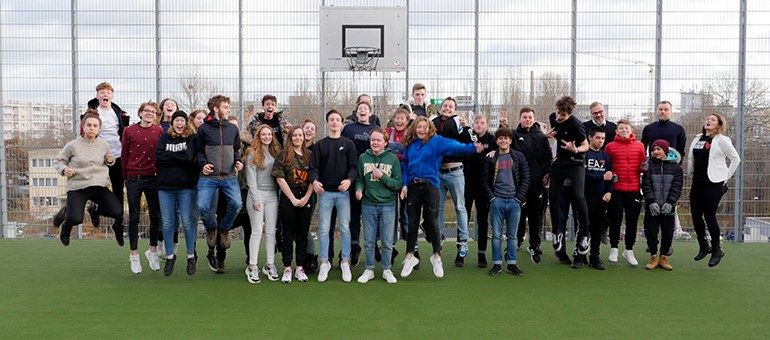
Future from a Youth Perspective
The podcast project gives young people a voice - both figuratively and literally. Here they talk and decide about the what (content) and the how (production). Young people are between 15-18 years old and usually excluded from public debates about the future. At the same time, young people are increasingly making their voices heard and publicly demanding to be involved in shaping their future. So it is time to listen to them.
"Getting young people actively involved in problem solving in our current society - for me that would be learning for the future."
(Antje Bostelmann, founder of Klax)
Project duration
01 September 2019 until 31 August 2022
Projektpartner
- Klax School (Germany)
- Vathorst College (Netherlands)
- Sands School (United Kingdom)
- Västra Berga skola (Sweden)
In the two-year EU-funded podcast project, young people from four European countries discuss, argue and negotiate about topics that will shape society in the future. These include questions about sustainability, technology, the future of work models and human life in the digitalised world. For this purpose, pupils from the Netherlands, Great Britain, Sweden and Germany met three times for one week each at one of the partner schools.
The project serves the purpose of democracy building and is funded by the European Union within the framework of the Erasmus+ programme. A total of 16 podcasts were produced during the project. Some of them are still being completed and the results are constantly updated on this page.
The joint learning process is documented on the EU learning platform eTwinning. Here, schools from transnational projects exchange information and network with each other.
Democratic proximity in a digitalised world
The intensive kick-off week with a total of 49 international students and 8 teachers clearly showed why physical encounters and plenty of time for exchange are so important, even in a digitalised world. After all, time spent together means, above all, shared experiences that bring a group together in the first place. The approximately 60 project participants with their different perspectives experienced city tours, discussions and unplanned twists together. They had to organise themselves democratically and make joint decisions. In this way, they independently took responsibility for their project and dealt with their different ideas and wishes.
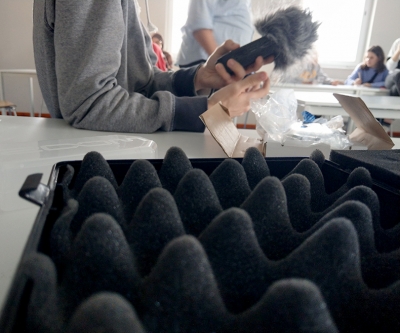
Learning democracy
Schools also learn differently in the digitalised world than before. Knowledge is accessible everywhere nowadays and is no longer imparted only by authorities. Collaborative development is replacing individual knowledge. Therefore, roles of learners and teachers are increasingly shifting. The project combines the common search for new ways of working for the future with the challenge of engaging with other school systems and forms of organisation. Europe as the frame of reference and focus of the project creates awareness for the immediate, social and real-political lifeworld of the young people.
School as a place of learning combines the necessity of structures and rules with the task of educating self-determined and critical young people. The school system thus reflects the foundations for democratic processes. It is an ideal laboratory for practising democracy.
Weitere Podcasts
Podcast by Ayman, Imad, Owen, Pepijn, Milou, Ghina, Maya and Arek
Covid 19 Podcast
Democracy Podcast
Podcast by Ergon, Aabbe, Adam, Mahad, Sam and Woot
Integrations Podcast
Podcast by Lennart, Ronja, Suus and Kiki
Podcast by Omar, Gustav, Ergon, Maria, Eric, Theo, Mika, Eline and Valentin
Anti-Semitism Part 1 Podcast
AFV Interview Podcast
Feminismus Podcast
KI Podcast
Podcast on genetic engineering by Ben, Luca and Sebastian
Articles
"European Radio Podcast - We shape our own future" is an Erasmus+ project and is realized with funding from the European Union.
The European Commission's support for the production of this publication does not constitute an endorsement of its contents, which reflects the views only of the authors. The Commission cannot be held responsible for any use which may be made of the information contained therein.
